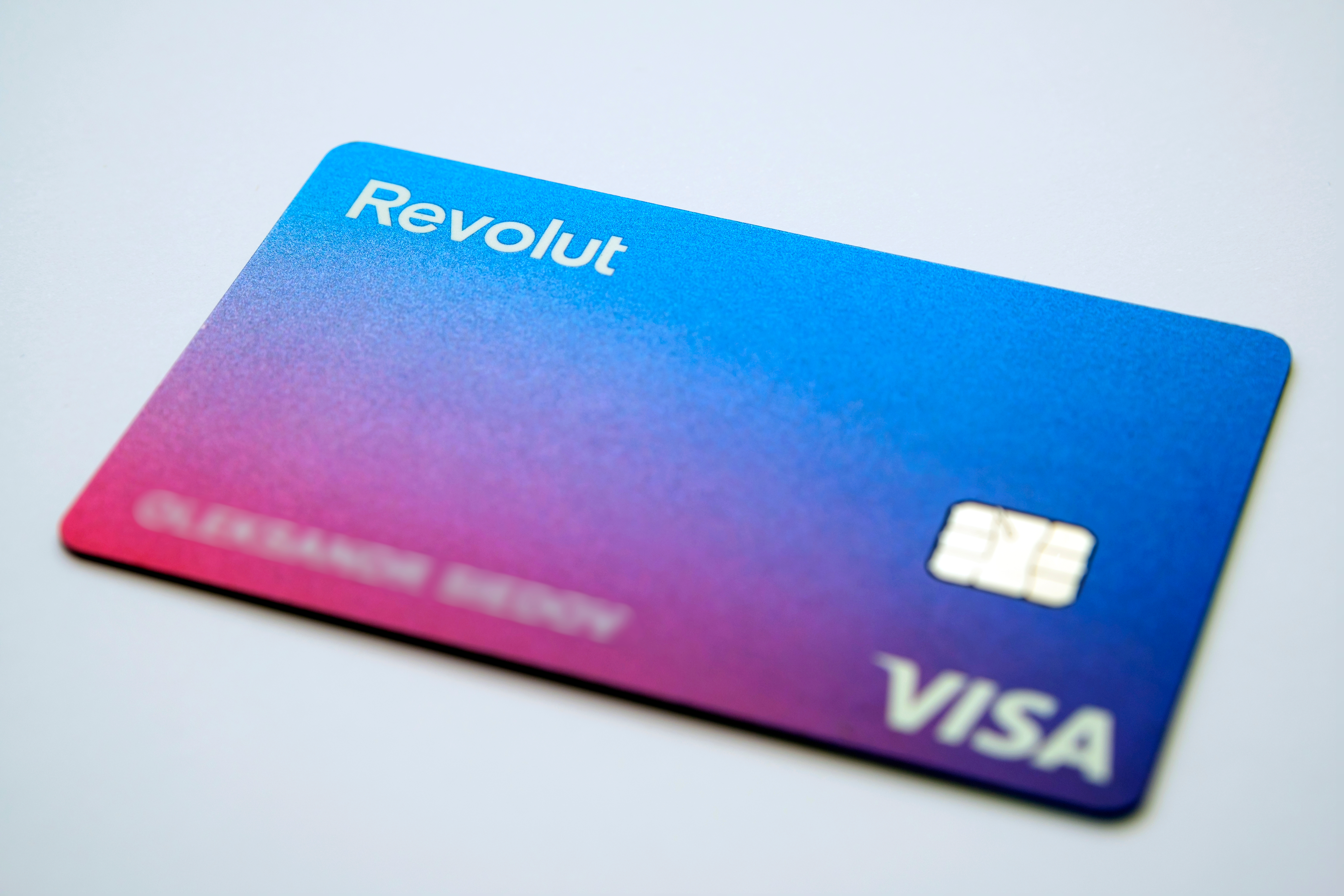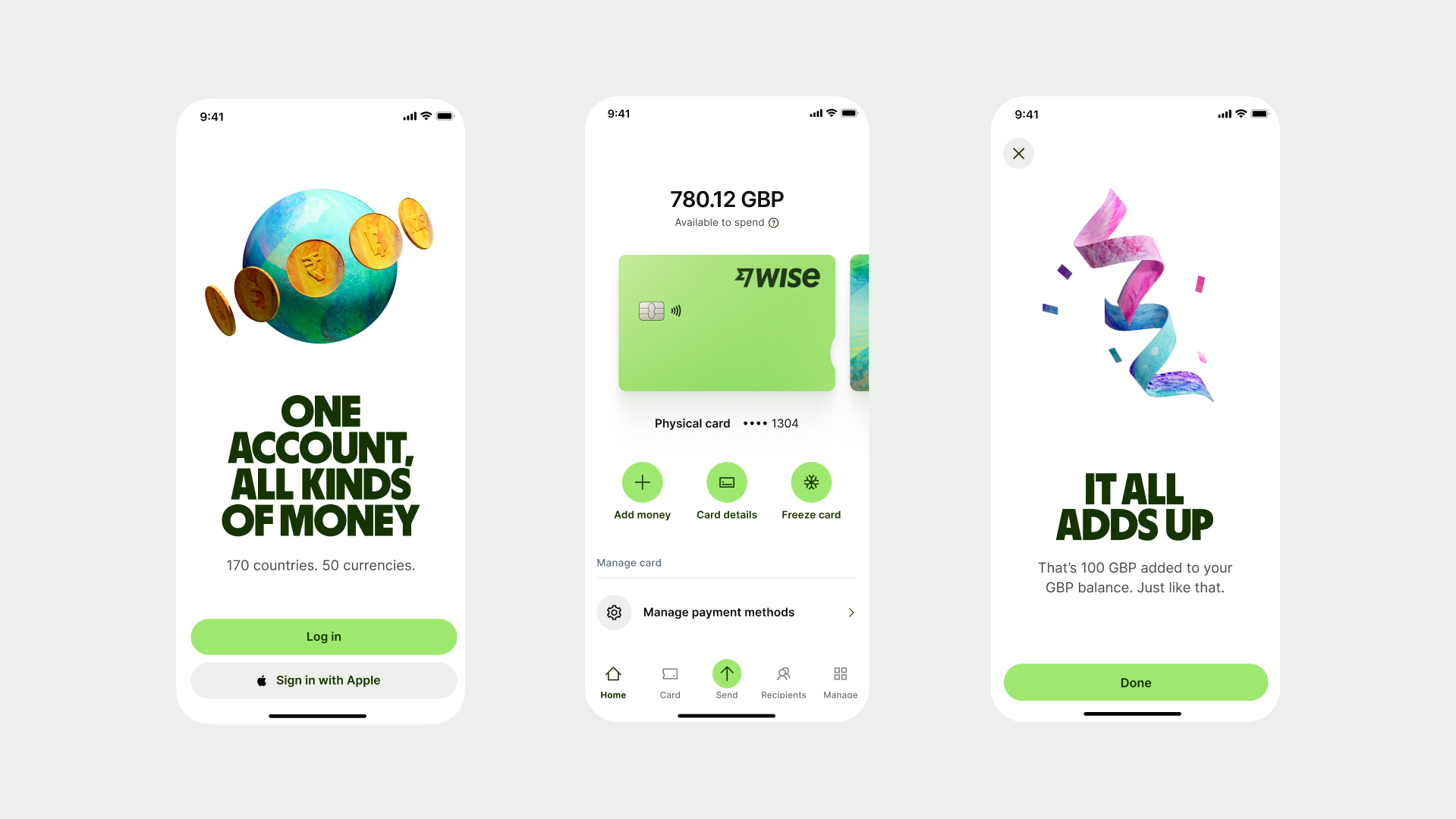Best International Banks: What are the Options? 2026
If you love to travel overseas – or if you’re abroad for longer periods of time as an expat or a digital nomad – having an international bank account can be handy. International bank accounts tend to be optimised for people who need to hold, send, spend or receive foreign currencies, making them convenient, and often cost saving.
This guide walks through some of the options for international accounts from large Australian banks, and also some non-bank options like Wise and Revolut, which can offer flexible and low cost ways to manage your money across currencies.
5 Best Banks for International Travel
Different international accounts have their own features and fees, with some intended for individuals looking to save in foreign currencies, some meant for day to day use, and others which are targeted at business owners. The good news is that there’s plenty of choice for international banks and accounts from non-bank providers, so you’ll be able to find the product which suits your specific needs best.
Here are our picks for the top 5 accounts for international travel for expats and digital nomads.
- Wise Account: best for holding 40+ currencies, and spending with your linked Wise card in 150+ currencies, with the mid-market rate and low fees
- Revolut Account: best for choosing from different account tiers depending on your needs, to hold 30+ currencies, spend with your Revolut card, and get extras like accounts for under 18s
- Westpac Foreign Currency Account: best for holding and receiving a broad selection of currencies, with 12 available for online account opening, and more in a branch if you need them
- Commbank Foreign Currency Account: best for getting an account in pretty much any convertible currency, with no monthly fee to pay and options to hold, receive and send international transfers
- NAB Business Foreign Currency Account: best for businesses needing ways to receive and send international payments conveniently in 16 major currencies
What is an international bank account?
An international bank account is an account that has been optimised for international use. Accounts have varying features to make sure they suit specific customer needs. Major Australian banks primarily offer foreign currency accounts you can use to receive, hold, send and exchange foreign currencies alongside AUD. Non-bank providers have accounts which are designed for day to day use as well as for holding a foreign currency balance, and which come with linked payment cards for convenience.
Here are some potential benefits of international accounts, depending on the specific product you select:
- Hold balances in one or more foreign currencies
- Earn interest on your foreign currency savings
- Receive payments in foreign currency to your account conveniently
- Low or no foreign transaction fees when you spend with your card
- Favourable exchange rates may be available
Can you open an international bank account?
You can open an international bank account in Australia with certain banks – or you can pick a specialist provider like Wise or Revolut. We’ll cover more on this later on, including a more in depth look at banks and non-bank options you may want to consider.
What is the best international bank?
There’s no single best international bank or account – which works best for you will depend on how you want to use your account. Some options are more suited to people looking to save or invest, while others are for day to day use.
Here we’ll provide an overview on each of our top picks and then we’ll explore more about the options available in detail. Later on, we’ll also cover what to consider when choosing an international bank.
| Wise Account | Revolut Account | Westpac | Commbank | |
|---|---|---|---|---|
| Availability | Personal and business customers | Personal and business customers | Personal and business customers | Personal and business customers |
| Account opening fee | No fee for a personal account; 65 AUD fee to open a business account | No fee | No fee | No fee |
| Account maintenance fees | No fee | Fees may apply, depending on the plan you pick
Standard plans have no monthly charge |
No fee – you must also hold an eligible AUD account which may incur a fee | No fee – you must also hold an eligible AUD account which may incur a fee |
| Multi-currency Account | Supports 40+ currencies | Supports 30+ currencies | Available in 12 currencies for online opening, or for most convertible currencies in a branch | Available in most convertible currencies |
| Travel Card | Wise debit card, for use in 150+ countries | Revolut debit card, for use in 150+ countries |
|
|
| Foreign Transaction fees | No fee to spend a currency you hold
Currency conversion from 0.43% |
No fee to spend a currency you hold
|
Not applicable | Not applicable |
| Currency Conversion Rates | Mid-market rate | All accounts have some currency conversion which uses the mid-market rate; fair usage fees apply once plan limit is exhausted | Exchange rate may include a variable markup | Exchange rate may include a variable markup |
| Foreign ATM Transaction Fees |
|
|
Not applicable | Not applicable |
As you can see, the international accounts on offer do vary a lot in terms of features and fees. The accounts we’ve profiled from non-bank services have a focus on easy ways to manage your money online and through an app, with a linked card for spending and withdrawals. The international bank accounts featured tend to be more aimed at people making and receiving overseas payments, with no linked card provided.
Ultimately, which suits you might just come down to how you want to use your account, and which services are important to you. Here’s a brief summary of who the accounts we’ve picked out may appeal to:
- Wise Account: great for personal or business customers for day to day use – hold, send, spend and exchange 40+ currencies, get local bank details for 8+ currencies
- Revolut Account: great for personal or business customers, with a linked card for day to day use. You can also access extras like accounts for under 18s, and higher tier account plans which have perks and discounts available
- Westpac Foreign Currency Account: great for existing Westpac customers who can hold and receive overseas payments alongside their AUD account – available for online opening in 12 currencies
- Commbank Foreign Currency Account: great for anyone looking for less common currency holding facilities – offered in pretty much any convertible currency, with easy ways to convert back to AUD when you need to
- NAB Business Foreign Currency Account: great for business customers who need to receive payments in any of 16 major world currencies
Wise Account
- Wise account is good for: no monthly fees, 40+ supported currencies, and ways to get paid in 8+ currencies by local transfer
- Wise travel card: available for use in 150+ countries
- Foreign transaction fees: no fee to spend a currency you hold; currency conversion from 0.43%
- International ATM withdrawals: some free withdrawals every month, low fees after that
You can open a Wise account online or in the Wise app, to hold a balance in 40+ currencies, and order a linked Wise card for convenient spending in 150+ countries. The onboarding process is entirely digital, so you can get set up from home, add money in AUD or the supported currency of your choice, and then either convert to the currency you need in advance, or let the card handle the conversion at the point of payment if you’d prefer.
Wise accounts also come with local bank details for 8+ currencies so you can get paid conveniently. Plus, personal and business customers can also use Wise to send fast – or even instant – payments to 140+ countries, with all currency exchange using the mid-market rate and low fees from 0.43%.
Revolut Account
- Revolut account is good for: picking the plan that suits your spending habits, including some with no monthly fee, and some with ongoing charges and more perks and benefits
- Revolut travel card:available for use in 150+ countries
- Foreign transaction fees: no fee to spend a currency you hold; all accounts have some currency conversion that uses the mid-market rate, with fair usage costs after that
- International ATM withdrawals: some no-fee withdrawals every month, low fees after plan limit is exhausted
Revolut has 3 different plan types for personal customers, plus alternative options for business customers. You can select the plan you’d prefer, including some with no monthly fees and others which do have a charge every month, but which have higher no-fee transaction limits, and extra benefits. Some higher tier personal plans have discounts on international payments, priority customer support and airport lounge access, for example.
All Revolut accounts have some no-fee ATM withdrawals offered every month, and some currency exchange that uses the mid-market exchange rate. Depending on the plan you pick, limits may apply, with fair usage fees after that. Some out of hours charges can also apply if you’re exchanging currency when markets are closed.

Westpac Foreign Currency Account
- Westpac account is good for: no ongoing charges, with online opening in 12 major currencies – you’ll need an AUD account with Westpac to apply
- Westpac travel card: not available with the foreign currency account – Westpac has a separate travel money wallet and card that supports 10 currencies
- Foreign transaction fees: not applicable – an exchange rate markup may apply when converting back to AUD from your foreign currency account
- International ATM withdrawals: not available with the foreign currency account
If you’re already a Westpac customer with an AUD account you may also want to open a foreign currency account so you can see your foreign currency balance conveniently alongside your AUD balance. You’ll be able to receive payments to your Westpac foreign currency account and use your balance to send transfers of your own, or convert back to AUD to withdraw to your local bank account instead. The Westpac foreign currency account doesn’t come with a linked payment card, making this more of an option for sending and receiving foreign currencies, rather than spending when you’re away. However, if you need a travel money card, Westpac does also have a travel card and wallet which may be worth looking at – some fees do apply.
Commbank Foreign Currency Account
- Commbank account is good for: availability across pretty much all convertible currencies
- Commbank travel card: not available with the foreign currency account – Commonwealth has a separate multi-currency wallet and card for personal customers
- Foreign transaction fees: not applicable – an exchange rate markup may apply when converting back to AUD from your foreign currency account
- International ATM withdrawals: not available with the foreign currency account
Commbank has foreign currency accounts you can open in almost any currency you can think of. You’ll need an eligible Commbank AUD everyday account or saving account to apply, but once you have an account up and running you can then manage your foreign currency balances online more conveniently.
There’s no specific fee to open your foreign currency account, although charges may apply to the AUD account you hold which are worth considering. This account is aimed at people who want to receive and save foreign currencies in particular, as it’s possible to earn interest on some currency balances. Commonwealth has a separate travel money card for personal customers.
NAB Business Foreign Currency Account
- NAB Business account is good for: business customers sending and receiving 16 major currencies
- NAB Business travel card: not available with the foreign currency account
- Foreign transaction fees: not applicable – an exchange rate markup may apply when converting back to AUD from your foreign currency account
- International ATM withdrawals: not available with the foreign currency account
NAB does not promote an international account for personal customers, but it does have an account for business customers which can hold and exchange 16 major currencies. There’s no minimum balance requirement, and you can transfer money in and out electronically. This account does not have a linked card so it is better suited to businesses receiving customer transfers, or sending money to suppliers and contractors overseas digitally.
What are the advantages of international banks?
Travellers, expats and digital nomads can benefit from an international account from a bank or non-bank provider. Advantages can include:
- Hold and exchange multiple currencies all in the same place
- Get paid in foreign currencies by others
- Spend internationally with a linked debit card
- Send transfers overseas to cover ongoing bills or remit money home
- Earn interest on foreign currency balances
How to choose the best international bank account for your needs
There’s no single best international or bank account for international travellers, expats or digital nomads. Ultimately which provider and account product suits you best will depend on how you transact, the currencies you need to hold and exchange and whether or not you need an international payment card. Here are a few things to consider when you’re weighing up your options for an international bank account:
- Availability of Foreign Currencies: check the currencies you use regularly are supported, as you may need to pay a fee if you’re spending an unsupported currency
- International fees: if you’ll be sending payments overseas take a look at the costs, and whether or not there are any extra international or foreign transaction charges
- Currency conversion rates: generally looking for an account which uses the mid-market exchange rate or as close as possible to it will mean you get the best available deal
- Safety: only ever pick a reputable and regulated provider – those highlighted on the Currency Shop are all fully licensed and regulated for the services they offer
- International travel cards: if you travel or shop online with overseas retailers, having a card linked to your international account can make it more convenient – and sometimes cheaper – to spend in foreign currencies
How to open an international account
The process to open an international bank account varies depending on the provider or bank you pick. However, in many cases you can get started online. Processes are likely to be different if you’re opening an account with a bank compared to a non-bank provider, but both are pretty simple to navigate.
As an example, here’s how to open an international account with Westpac:
- If you have a Westpac AUD account, sign into online banking – if not, open the Westpac desktop site and navigate to the account you want
- Select the option to open a foreign currency account
- Complete the required information – verification may be requested
- Once your account is fully verified you can transact freely
And here’s how to open a Wise account step by step:
- Open the Wise desktop site or app and click on Create account
- Enter your email address, Google, Apple or FaceBook ID
- Tap the type of account you want to open – personal or business
- Follow the prompts to enter your contact information
- Verify your account, following the onscreen instructions
Whether you pick an account from a bank or from a non-bank provider, there will be a verification step to comply with local and international law. This usually means uploading an image of your ID documents, or in some cases, presenting them in a branch. What’s needed does vary, but usually you can use your driver’s licence, Medicare card, passport or birth certificate.
How to open international bank account online
Some Australian banks offer online options for account opening, but bear in mind that in some cases the opening process can only be started online, and your account won’t be fully open until you receive, sign and return some paperwork, or present yourself in a branch.
With digital only services like Wise and Revolut the whole process takes place online including verification. That means you can get your account set up without leaving home.
What are the best international banks with no fees?
Account pricing structures can vary a lot – and will often be very different with different banks or online providers. For example, some account services can offer account opening for free but charge monthly account keeping fees, whereas others charge for getting a debit card. Bear in mind that if you pick an account from a bank, you’ll usually need an AUD account as well as your foreign currency account – there could be a monthly fee for this as well as for transactions you make.
Here is a brief outline of the fee structure of the providers we’ve explored in this article:
- Wise Account fees: free to open a personal account, low charge for a debit card, with no ongoing fees and currency exchange from 0.43%
- Revolut Account fees: Standard plans have no monthly fee, other account tiers have some monthly charges – all accounts have some no-fee transactions, with fair usage costs applying after that
- Westpac Foreign Currency Account fees: no account keeping fee, but the underlying AUD account you hold may have its own charges. Exchange rate markups are likely to apply
- Commbank Foreign Currency Account fees: no account keeping fee, but the underlying AUD account you hold may have its own charges. Exchange rate markups are likely to apply
- NAB Business Foreign Currency Account fees: no account keeping fee, but the underlying AUD account you hold may have its own charges. Exchange rate markups are likely to apply
What is the safest international bank?
All of the providers covered here are regulated and licensed, with their own security features built in to make sure your money is safe. It’s important to check the details of your account carefully so you understand all the safety features – here’s a quick look at some helpful options for the accounts we’ve covered here.
- Wise Account: view and manage your account in-app, freeze your card and order a new one if you need to, get digital cards for online spending
- Revolut Account: see your account balance with just your phone, freeze and unfreeze your card, and get safer online shopping with a Chrome extension
- Westpac Foreign Currency Account: large bank network, with plenty of branches you can visit if you want face to face service – manage your money online conveniently
- Commbank Foreign Currency Account: service options include phone, in branch and online banking so you can always get the help you need if you have a security issue
- NAB Business Foreign Currency Account: dedicated business banking support systems in place for any queries or issues
Best ways to withdraw money when travelling abroad
Sometimes only cash will do – so having a multi-currency account with a linked card to make ATM withdrawals overseas can really help. Here are some ways to get cash overseas without paying high fees:
- Read through your account terms and conditions carefully to look for ATM fees, which can apply instantly or once you’ve exhausted your plan fee-free limit
- Avoid using a credit card at the ATM – this usually means a higher overall cost
- Keep an eye out to see if the ATM operator will add their own fees – this will usually be shown on screen if it applies
- Consider a multi-currency account from Wise or Revolut which lets you convert to the currency you need in advance, so you can see your travel budget
- Always pay in the local currency wherever you are to get the best available exchange rate
How to avoid foreign transaction fees
Foreign transaction fees can apply when you spend money overseas, or make a cash withdrawal – these costs can add up to 3% onto the cost of all your travel spending. Here are a few good ways to avoid paying foreign transaction fees with no extra hassle:
- Check your account fee schedule so you know in advance if your card comes with foreign transaction fees
- Avoid paying high fees for international transactions with a multi-currency account from Wise or Revolut which lets you hold dozens of currencies and spend with no fee
- Always pay in the local currency wherever you are to get the best available exchange rate
Conclusion on best international bank for expats
There’s no single best international bank for expats, travellers and digital nomads. To find the one which suits you best you’ll want to compare the options from banks against non-bank alternatives such as Wise and Revolut. The right one for you will depend on the type of transactions you need to make.
An international account from a bank can be handy if you want to see your foreign currency holding in your regular internet banking, and if you’re only looking to send and receive international payments. If you want to do all that, and also have a card to spend and withdraw overseas, a non-bank alternative like Wise or Revolut may be a more flexible option. Compare your options using this guide, to see which appeals the most.
FAQs on Best Banks for International Travel
Can you open an international bank account online?
Some Australian banks let you open an international bank account online – but sometimes you also need to complete an in-person verification at a branch, or sign and return some paperwork. Non-bank services like Wise and Revolut have a fully digital international account opening process.
What are the best international banks with no fees?
It’s usually impossible to completely avoid fees – but the costs of different bank and non-bank international accounts do vary pretty widely. Bank international accounts may not have any account keeping fee, but there are often transaction charges, and you’ll also need an AUD account which may have its own fees as well. For flexibility with low costs consider options like Wise and Revolut.
Which bank account is best for international travel?
There’s no single best account for international travel. However, if you’re hoping to spend and make withdrawals overseas with low fees and good exchange rates, it’s helpful to have an international debit card which can be used alongside a digital multi-currency account. Check out Wise and Revolut for low cost, easy options to get you started.
How can you avoid bank charges when travelling internationally?
Banks may have foreign transaction fees and exchange rate markups which apply when you spend overseas. You might find you can cut or entirely avoid these costs if you open a multi-currency account which lets you hold and exchange the currencies you need more conveniently – often with great exchange rates, too.
What bank does not charge international ATM fees?
You might find your bank has no international fee if you use an ATM at an overseas branch of the same bank, or one of its banking partners. Alternatively, some specialist non-bank services like Wise and Revolut have accounts which offer some no-fee withdrawals every month.
Should you have a separate bank account for travel?
Having a separate bank account for travel – or an account from a specialist non-bank service – can be a good move if you can find an account that suits your needs and which has low fees and no account keeping charge. If you’ve got a linked card you can use it overseas – and you won’t need to worry about losing your primary bank card while you’re away.


